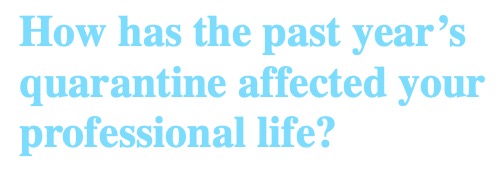One of the few bright spots of the past year is that the pandemic has finally made conferences and workshops more widely accessible, something for which many of us who are sensitive to issues of equity had long been advocating. Some challenges remain (such as how to socialize online or attend equally to live and virtual audiences), but with talk of in-person and online conferences in alternating years and the availability of technology at many venues now, I am optimistic that the positive changes will endure.
As a researcher of Renaissance music and plague, I have never felt closer to my historical subjects. COVID has spurred me to reinterpret some of my sources and understand them in a more nuanced way. For example, a doctor wrote in 1564 that during times of plague, birds sing differently, and foxes, dogs, and wolves all howl more than usual. I had read the description as an expression of neo-Platonic disharmony in nature, but ornithologists found last year that songbirds were indeed singing differently; and furthermore, with less noise pollution, many of us were noticing new layers to our soundscapes. Similarly, I interpreted the often-repeated description in plague texts that “there is no one to bury the dead” as a literary trope until cadaver trucks rolled into New York and bodies floated down the Ganges. The fervor with which quarantined Milanese, in 1576, came to their windows to sing religious songs together seven times a day (chroniclers called the music heavenly Jerusalem on earth) may indeed have been motivated by religiosity and communitas; but it was probably also driven—I realized soon after lockdown—by boredom. In this bridging of horizons, metaphysics suddenly became physics, the poetic became literal, and the auratic and remote, entirely mundane and relatable.
REMI CHIU, musicologist and associate professor, Loyola University Maryland

